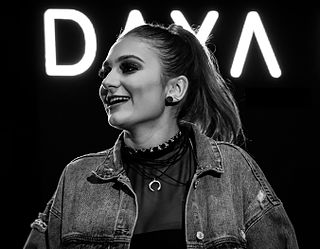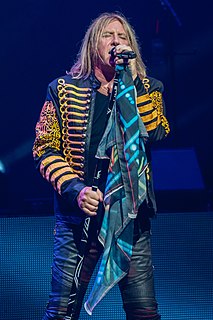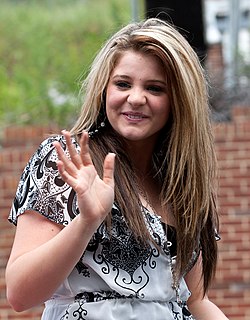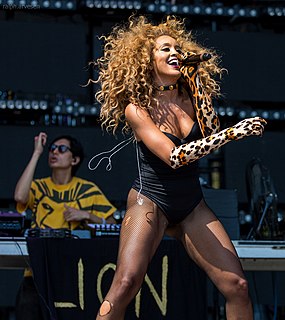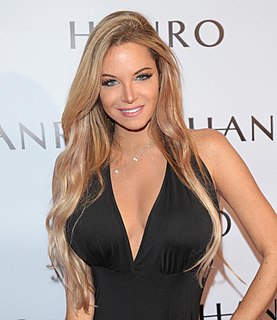A Quote by Daya
When 'Hide Away' first started gaining a bit of momentum, I was visiting at least two radio stations per day - sometimes in different cities - to spread the word about the song. It was a hustle, but so worth it.
Related Quotes
I was invited to L.A. when I was 16 for a weekend-long songwriting session by a writer I had met through my voice teacher in Pittsburgh. My first hit, 'Hide Away,' was one of the songs written during those sessions. It was played for a radio rep who then started a new label; the song got a pretty organic start at radio and then took off.
Day one through three of the radio tour, I actually went by Camaron Ochs. I went to my first set of radio remotes, and everybody was just like 'What's your last name?' It's not easy to pronounce. The first two minutes I got with people, that's what they wanted to talk about, and sometimes those two minutes is all you get.
The best thing we've learned is when you are attempting to write a full song, write a full song that day. When we first started, we would have great ideas, but there's something about a moment and a vibe that's being created in time that when you return to it, it sometimes works, and it sometimes doesn't.
'Smoke On The Water' was ignored by everybody to begin with. We only did it in the shows because it was a filler track from 'Machine Head.' But then, one radio station picked up on it, and Warner Bros. edited it down to about three and a half minutes. It then started getting played by lots of different radio stations.
College radio is a very important medium that needs to survive in difficult economic times when some stations are being sold off and shut down. College radio is the future for broadcasting stars and pioneers of tomorrow, and we as a band, Coldplay, support the vital mission of college radio and we also support College Radio Day, the day when college radio comes together.
Before the show, there's about two or two and a half hours of meet and greets with radio stations, promoters, people who I need to see and thank and talk to to make sure they remember me. And then, I get - out of all that day of talking and smiling and shaking hands and getting photos, I get to sing for two hours.
'Boneless,' even though we were thinking about servicing it to radio, it made more sense putting a vocal on there. This was actually the first time that I really looked at doing a song for radio and kind of let go of some control and listened to a lot of different radio pluggers and had Ultra come in and help out with ideas.
When I started graduate school we did this publishing class where we learned about submitting and read interviews with editors from different magazines. A lot of them said they got so many submissions that unless the first page stuck out or the first paragraph or even the first sentence they'll probably send it back. So part of my idea was that if I have a really good first sentence maybe they'll read on a bit further. At least half, maybe more of the stories in Knockemstiff started with the first sentence; I got it down then went from there.
